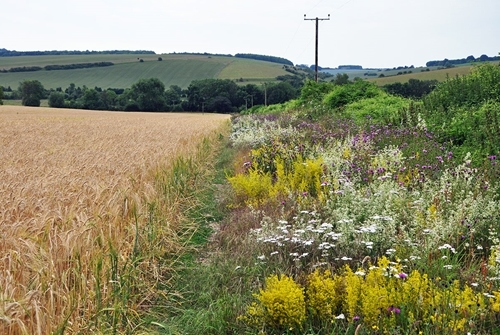
GWCT Farming Research
The Trust has conducted research on farmland wildlife since the late 1960s and this has included ecological studies of individual species, habitats, systems and long-term changes. Unfortunately, post-war agricultural changes have diminished biodiversity on lowland farms, driven by government policies and intensification. However, our research has identified ways of reversing this loss of biodiversity without reversing improvements to farming systems.
Our research ranges from studies of individual species to habitats, farms and landscapes and their management. These include studies examining the ability of predatory insects to control outbreaks of pest insects in cereals, developing and improving agri-environment scheme habitats to provide for wildlife (see, for instance, conservation headland), and even looking at the wildlife potential of novel crops like short-rotation coppice and sainfoin.
An article celebrating work carried out by the Trust in this area has been published on the National Geographic’s website, under their Nat Geo News Watch blogs. It documents how the Trust’s research has worked to improve farmland biodiversity over the 50 years since the publication of Rachel Carson’s Silent Spring, which in 1962 alerted the world to the devastating effects of the toxic chemicals in use at that time. Rachel Carson cited the Trust (then The Game Research Association) twice, acknowledging their scientific evidence for the impact on UK wildlife.